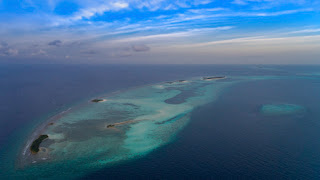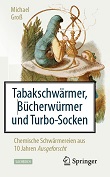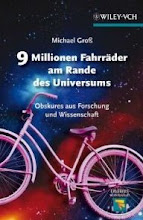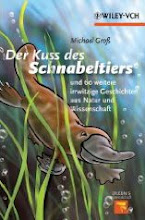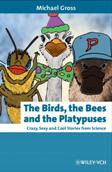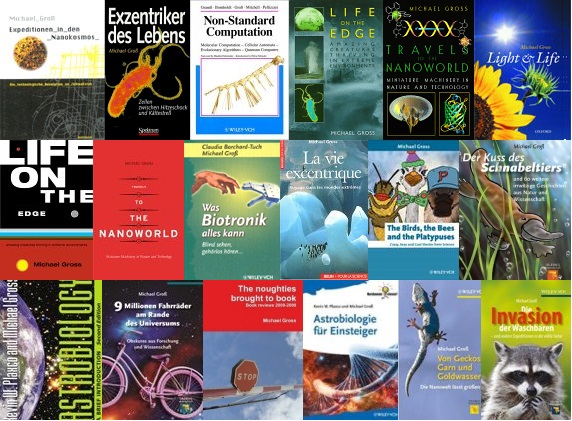The roundup of German pieces published in September and October includes worms (separately) damaging books and plastic bags, the benefits of fish oil and cannabis, the networks of microglia in the brain and chemists' families, including the family of
my PhD supervisor whose father worked with Haber, who invented the synthesis of ammonia, about which there is also an article. Obviously, you can buy fish in plastic bags and even catch it yourself using those very same caterpillars as bait, and cannabis probably influences the microglia in some ways, so everything is connected to everything else. Phew.
Stickstofffixierung: Ammoniaksynthese bei Zimmertemperatur?
Chemie in unserer Zeit Volume 51, Issue 5, October 2017, p 294
Access via Wiley Online Library
Abbau von Polyethylen: Kontroverse um Raupen und PE
Chemie in unserer Zeit Volume 51, Issue 5, October 2017, p 294
Access via Wiley Online Library
Netzwerk Leben: Mikroglia – Wächter im Gehirn
Chemie in unserer Zeit Volume 51, Issue 5, October 2017, pp 298–299
Access via Wiley Online Library
Ausgeforscht: Verjüngungsrausch für Senioren
Nachrichten aus der Chemie
Volume 65, Issue 9, September 2017, page 975
Access via Wiley Online Library
Ein Genschalter für Essgewohnheiten
Nachrichten aus der Chemie
Volume 65, Issue 10, October 2017, pages 989–991
Access via Wiley Online Library
Chemie als Familientradition
Nachrichten aus der Chemie
Volume 65, Issue 10, October 2017, pages 1036–1038
Access via Wiley Online Library
Ausgeforscht: Dem Bücherwurm auf der Spur
Nachrichten aus der Chemie
Volume 65, Issue 10, October 2017, page 1075
Access via Wiley Online Library


